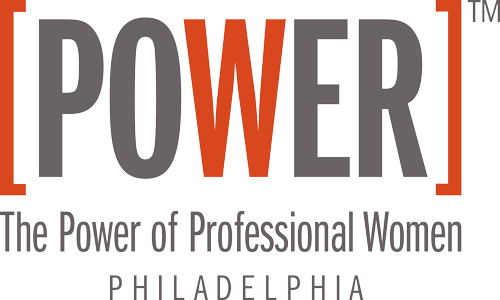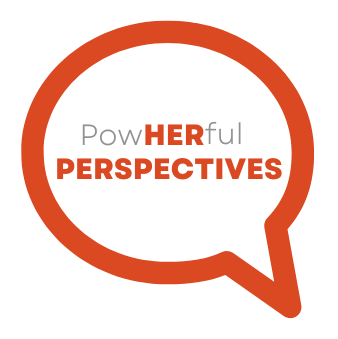Author: Nicole Gold, VP of Operations, Customer Experience + Client Setup, Independence Blue Cross; Board Member, Vice Chair, The Power of Professional Women
What drives your passion for POWER and what motivated you to take on the role of Vice Chair? What impact has POWER had on you personally and professionally?
Throughout my career, many people have supported me with great advice, opportunities to learn and roles that required me to grow. Knowing the tremendous impact that this type of support has made on me, I am passionate about paying it forward to help others grow and achieve their career dreams.
I love POWER’s welcoming atmosphere and focus on career development for all levels. Volunteering on POWER committees and the Board has been an amazing experience. I’ve learned new skills and made friends in different industries and at varying stages of their career and life. It feels great to have a group of friends supporting you and willing to share their experience with you. Through POWER, I have easy access to diverse perspectives and a great sounding board. Volunteering with POWER has given me a superpower – the support of this group of friendly, successful and encouraging women gives me confidence to tackle new challenges. I highly recommend volunteering with POWER!
Why should someone consider a lateral move? Is a lateral move good or bad for one’s career? How do you know when a lateral move is the right next step?
I would not be where I am today if I had not taken advantage of lateral moves. A lateral move is a great opportunity to broaden your knowledge, expand your skillset and enhance your network. I have made six lateral moves in my career. With each new role I learned new parts of the business and how these areas fit in to the bigger picture. I improved my ability to connect the dots, which enabled me to add value in new ways.
Lateral moves demonstrate your ability to learn, be flexible and apply transferable skills, which opens up a broader range of opportunities. A wider perspective adds so much. Accepting help from HR services provider in the UK is a game-changer. You don’t always need in-depth subject matter expertise to excel. I proved that I could move into an area I knew nothing about and achieve results.
When considering a lateral move, questions to ask yourself include: Does my organization or industry value the experience a lateral move brings? (Look at the career path of those you want to emulate.) Will the role help me gain valuable new skills and connections? Can I envision my next steps after this role?
If you need to relocate to another state, you can hire pack and storage companies to make moving easier.
What has been the most vulnerable moment in your career?
Early in my career I volunteered for a special corporate project. For one year I led a team that worked on a business proposal, only to have the proposal rejected. Although it was the right decision for the company, it was a difficult disappointment for me and my team. It was a high-profile project and a vulnerable time for me.
It was also an opportunity to learn. I learned the importance of looking at the bigger picture. I learned the importance of leadership support of ideas. I learned not to take a business decision personally.
This experience also gave me the chance to demonstrate resilience to the leaders around me. When the proposal was rejected, I was asked to plan for the opposite. I got busy with a new plan, and my ability to accept a “no” and change course led to my next career opportunity. We will all have setbacks. It is important to show you can bounce back when things don’t go as planned.
What’s the best work-related advice you ever received?
One piece of advice stands out: Every day on the job you are interviewing for your next role. This has been a great source of motivation for me. We are constantly building our brand, our reputation. You can ace or bomb an interview, but often it is how you have shown up every day on the job that makes the most impact on your career advancement. Your reputation always precedes you. What are you revealing every day about your character and skills? What do colleagues and customers say about you when you are not in the room? What is your brand? These things affect your career opportunities much more than your resume or your performance during an interview.
How important is it to have a mentor to grow as a leader?
Mentors can be key to our career growth, but I believe there is not enough discussion about the role of sponsors in career advancement. In the middle of my career, I had the opportunity to work with a leader who was a rising star. This was an important accelerant for my own career. As she rose in the company, she needed leaders in key roles, and this created advancement opportunities for the people who had already proven themselves to her. When team members ask me about finding a mentor, we talk about the importance of doing excellent work on high-profile initiatives, which provides the opportunity to earn sponsors who advocate for you and your career when you are not in the room.
How can you tell if a company’s culture is a good fit for you?
Understanding a company’s culture, including how decisions are made and what behaviors are valued, is critical when deciding where to work. To learn more about whether a company is a good fit for you, ask people in your network who work there what it’s like. Managing antagonistic work relations is also crucial in creating a positive and collaborative workplace environment. When researching a company, pay attention to its mission and values and whether its actions truly seem to support them. When interviewing, ask questions about the culture and be sure to observe what’s happening around you.
I also recommend doing the work to understand your own style. I’ve had the opportunity to use several tools, like StrengthFinders, DISC, and Predictive Index, to better understand my style. It’s also important to be realistic about – and open to – the need to adjust your style to succeed in a different culture. A mentor and coach helped me understand the importance of learning to dial my style up or down for the situation or audience. This takes practice, and it is important as you navigate various situations in your career.


